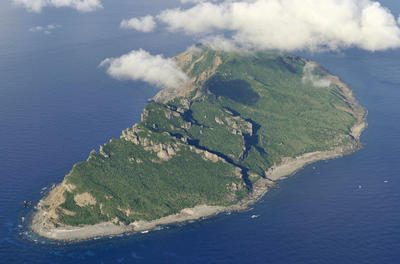Prior to 2010, China maintained a relatively low-key posture toward the islands, but now it is taking a much more aggressive approach. Whereas China previously took the stance that Japan should merely acknowledge that there is a territorial dispute over what it calls the Diaoyu Islands, it now seems to be going a step further by sending ships and planes in ever greater numbers into the vicinity of the islands in what appears to be a bid to test Japan’s resolve and establish the perception in the international community that China and Japan exercise joint control over the territory, rather than the status quo view that Japan exercises effective control. Of particular concern was a recent incident in which a Chinese naval frigate locked its fire-control radar onto a Japanese ship putting the two countries precariously close to exchanging fire for the first time in the postwar era.
Looking at Japan, the administration of the new prime minister Shinzo Abe is often seen as a clear example of Japan’s increasing rightward ideological shift. Moreover, after the incident in late 2010 in which a Chinese fishing boat rammed a Japanese Coast Guard ship, Japan was perceived as weak for bowing to Chinese demands to release the fishing boat captain. China used its economic power to pressure Japan, suspending rare earth exports and arresting four China-based Japanese employees of Fujita corporation. If Japan were to bend to Chinese pressure again, it would set a highly negative precedent and embolden China to continue to use such coercive methods of diplomacy.
Given the current flare up in tensions, and the unlikelihood that either side will back down, the potential for even a small mistake to lead to violent conflict is far too high. Resolving the issue in the short term may be unrealistic, but there is an urgent need to calm tensions and manage the issue carefully to prevent it from negatively affecting the Japan–China bilateral relationship and regional stability. An excessively narrow framing of the Japan–China relationship focused on the Senkakus is counterproductive. It should be remembered that the impact of these squabbles between neighbours — the second and third largest economies in the world — has regional and global ramifications as disruptions ripple along production chains.
In order to cool public sentiments, reaffirm the importance of the bilateral relationship, and increase mutual trust, Japan and China should increase their cooperative efforts toward breakthroughs on the China–Japan–ROK and the free trade negotiations. Efforts should also be increased for the establishment of an official China Japan–US trilateral forum with a 2+2+2 framework — including both foreign and defence ministers from each of the three countries — that includes discussions on increased confidence building measures, transparency, and joint operations for search and rescue and natural disasters.
Hitoshi Tanaka is a senior fellow at the Japan Center for International Exchange and chairman of the Institute for International Strategy at the Japan Research Institute, Ltd. He previously served as Japan’s deputy minister for foreign affairs. This article is an extract from East Asia Insights Vol. 8 No. 1 March 2013, which is available in full here, and is reprinted with the kind permission of JCIE.


In my opinion it is necessary to recognize that this territorial dispute has a third party: Taiwan. I think if Tokyo and Beijing begin formal negotiations about Senkaku-Diaoyou Islands, Taipei will claim. Until now Taipei has had a low profile.
Japan has a shameful history which is utterly despised by other Asians. The Japanese have never sincerely atoned for their war atrocities. Even still, they show total disregard for the feelings of other Asians. This comes from a sense of racial superiority.
It’s really hard to resolve the issue at this stage its having been highly publicized by media. I agree with your suggestions ” to cool down public sentiments” . In addition, governing politicians are pressured to take actions on the matter as opposition politicians can use the issue against them.
Therefore the issue here is not only amongst China, Japan and Taiwan, but domestic politics are fuelling the issue.